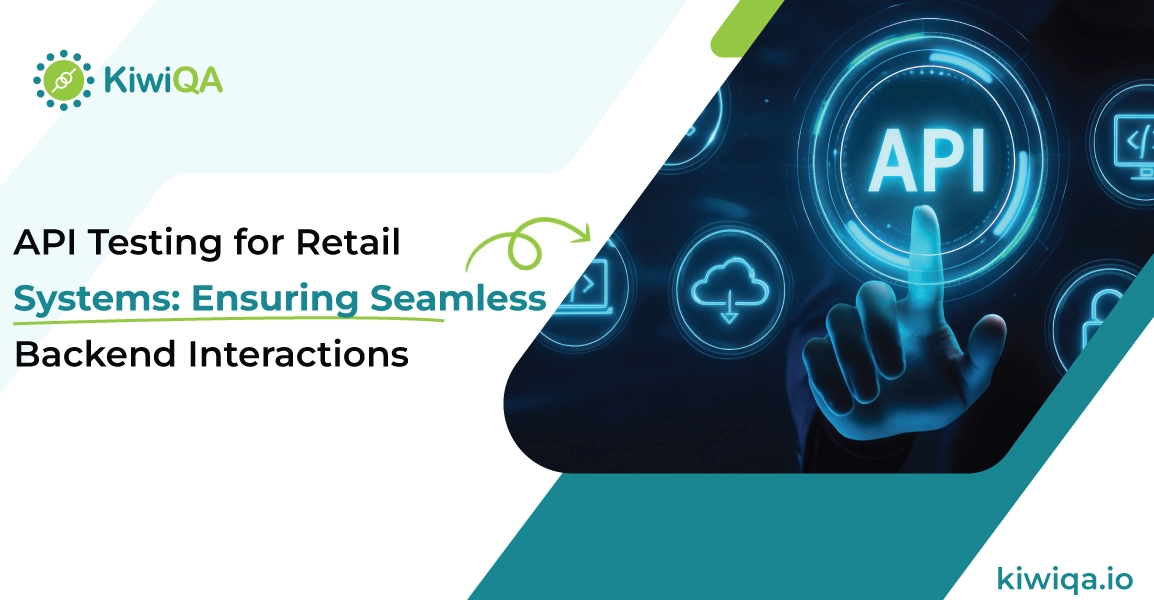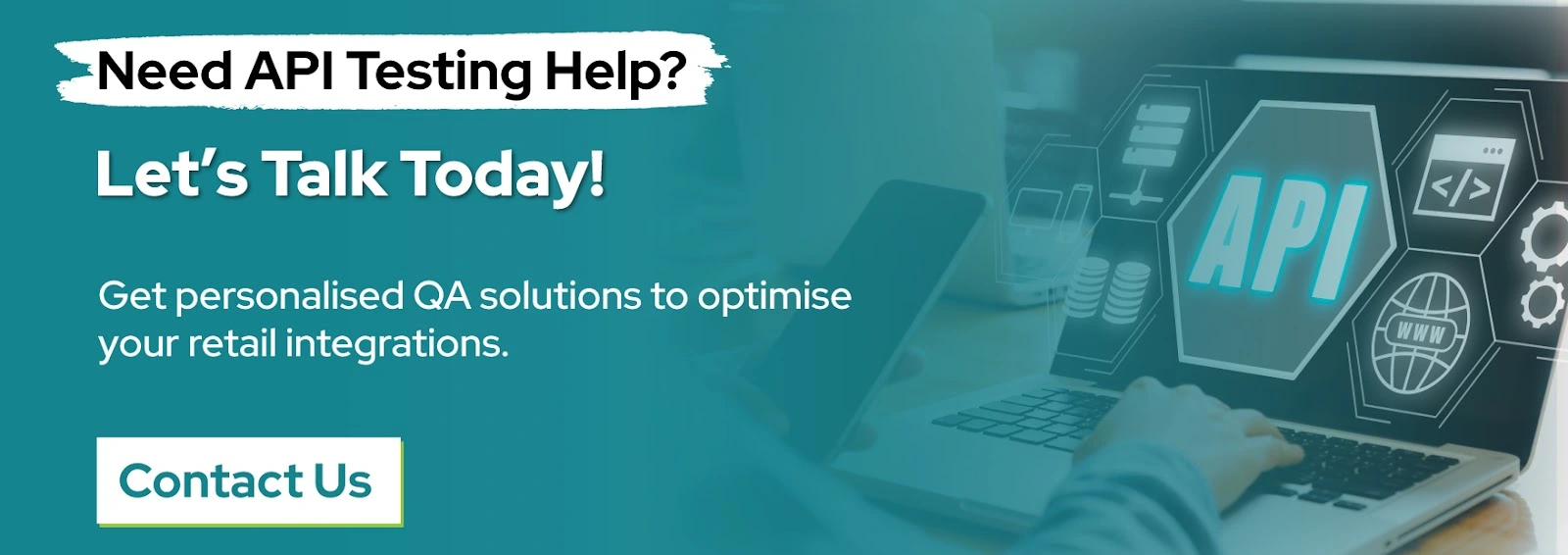Currently, the firms are expanding to the digital realm, and that’s the reason why they are confronting unexpected bugs. Organizations must take concern about their cybersecurity approaches & protect their digital assets from scams. As per the record, around 800 data breaches happened in 2023. These statistics emphasize the necessity of partnering with a QA security testing company.
Dealing with multiple digital threats & crimes requires strong insurance app security. App security testing monitors & mitigates the risks that can be hampered by cyber criminals. Integrating security testing in SDLC ensures there will be no security risks after deployment. The proactive approaches not only safeguard the data but also accelerate user trust.
Digitalization is the rapid growth in the insurance sector across all aspects. The increasing adoption of IT brings a profound transformation to this sector. The insurance industry invested $300 billion over the next 12 months, which shows both insurers & insured will benefit through this.
The industry is ready to embrace the technologies to address the challenges & monitor the regulatory & digital ecosystem. Digitization in the insurance industry improves the risk assessment & drives decision-making abilities. To safeguard sensitive customer & business data, the industry is integrating security QA testing in its SDLC to deliver a safe environment to access.
Understanding Security Testing in the Context of Insurance
● What is Security Testing?
Security QA testing is the way to monitor if the software is subject to any cyber risks. It tracks the system & sensitive data are secure & doesn’t have any loopholes. Security testing is a strong approach for app developers to identify & determine if there are any security loopholes. It ensures the app is safe from reauthorized access & data breaches. It’s a non-functional testing type with the goal to identify risk, recognize loopholes & examine the consequences of breach.
Security testing becomes a necessity in app development to maintain the authentication, confidentiality, authorization & business integrity. Unlike functional testing, which aims to check whether the program functions well or not, insurance software testing checks whether the app is designed & configured accurately or not. There are a few statistics that emphasize why security testing for insurance apps is critical. Here we mention them-
- Attackers can compromise the app within a week if the errors are known.
- The average cost of data loss in insurance firms exceeds $6 million.
- Almost 50% of errors in the insurance business are caused by 3rd party software.
- 37% of breaches are found due to cross-functional software errors.
- The worldwide insurance market is expected to reach $9.3 trillion in 2025.
● Why It’s Unique for Insurance Applications
➥ High-value personal and financial data (PII, medical histories, policy details)
Insurance business manages the most sensitive personal data of users in a vast amount. From social security numbers to PII, policy details & medical histories, and finance data, they hold sensitive information. These things make the application a prime target for cybercriminals. To maintain the regulatory guidelines & user trust, the insurance companies must integrate security testing.
➥ Regulatory obligations (e.g., HIPAA, GDPR, state-level insurance regulations)
The regulatory obligations are designed to safeguard the consumer demands in the insurance market. Guidelines like HIPAA, GDPR & other state-level regulations offer guidelines on how insurance companies must operate. To keep customers’ information safe from fraud, insurance companies need to follow up by approaching insurance software testing.
➥ Complex integrations with third-party systems and APIs
Through the rapid integration of new technologies and 3rd party services into their current systems, API interfaces enable insurers to innovate more swiftly. This feature gives insurers a competitive edge by decreasing the time to product deployment in the market.
The Risks of Neglecting Security Testing
● Data Breaches and Financial Loss
The insurance domain is booming right now, so neglecting Security QA testing can worsen the case. Advanced insurance applications have complex workflows & manage sensitive data throughout the platforms. To stay compliant with the regulatory guidelines, they are moving their concerns to security testing. From a policy holder’s contact number to financial data, to medical conditions & security pins, these apps contain every sensible data.
The rising number of cybercriminals increases the chances of data breaches & online fraud. A few years back, in 2023, Japan, an American insurance firm, had a huge data breach where hackers collected personal data of 1.3 million cancer insurance customers. Neglecting cybersecurity leads to significant financial errors, such as additional compensation or fines.
The regulatory authorities impose penalties if a firm is unable to follow the state & country laws. Additionally, the affected customers can also file a case by claiming compensation, which increases the business’s operational cost. The financial burden can impact insurance companies’ profitability and drain their resources. This is the reason why they should approach the strong practices of the best mobile app security testing solutions.
● Regulatory Penalties
Based on the report by eSentie, the cyberattack cost is predicted to reach $10 trillion by 2025. There are so many industries, from healthcare to finance & banking to government sectors, that need to follow the strict regulations. They must follow best practices for security app testing. Non-compliance can make these firms pay hefty fines & complexities to carry out their business identity.
Every business, including insurance firms, must follow GDPR laws, HIPAA & other state-level acts. Once a firm faces these hurdles, it puts the firm in a worst-case scenario. Users will lose their trust, and in worst cases, the company will go out of business. So, it’s necessary to collaborate with the security testing services company.
● Operational Disruption
Technical errors, cyberattacks & system malfunctions can disrupt the insurance operations and impact customer service. Cyber attacks in insurance firms disrupt the operational business hours, cause system downtime & delay services. Insurance firms suffering from malware & phishing attacks result in significant downtime. It can cause hidden costs.
Security testing assists companies to overcome various forms of cyber attacks like SQL injection, phishing, malware, etc. There are multiple approaches a firm can use to save itself from the financial loss & reputational damage. Furthermore, downtime & delays in operational stuff can cause loss of customers.
Also Read: API Testing for Retail Systems: Ensuring Seamless Backend Interactions
Key Areas to Test in Insurance Applications
● Authentication and Authorization
Authentication is a process used for verifying the system’s & user’s identity to give them accessibility. In automation testing, authentication includes verification of user credentials. However, authorization refers to giving authority to only the users who can access specific data. In insurance apps, the testing needs to be done for validating the app security & controlling the access to any 3rd party users or criminals.
It is necessary to balance brand value & confidentiality. Monitoring the cyber threats, data breaches & resolving them is a part of authentication & authorization. The testing team of a security QA testing company assesses the functionality verification of the document management system by monitoring the version control, storage & retrieval. Tester focuses on validating how the authorization schema can be implemented for each role & allows them to access the sensitive data.
Role-based access control practices are used to give authorization. Furthermore, multi-factor authentication is integrated into the insurance app to offer an additional layer of security to prevent unauthorized users from accessing any account. Adopting multi-factor authentication is crucial to validating user identity and giving them quick accessibility to their authentication.
● Data Encryption and Storage
In the insurance sector, modern IT systems are essential for providing services, satisfying growing client demands, and guaranteeing adherence to strict legal requirements. Insurance apps must provide customers with easy access to policy and account details in addition to supporting agents and sales teams.
Safeguarding users’ information should be the priority of every insurance company. For effective insurance testing, companies should follow data encryption. All the sensitive customer data must be encrypted in transit. The testing team for insurance application testing services ensures that the app utilizes role-based access to control accessibility.
Frequent penetration testers help to identify the loopholes & mitigate potential errors. To secure the key management practices, it is necessary to understand the domain-specific needs first. It is necessary to prioritize the critical modules & leverage the automation tools. Collaboration with stakeholders is also necessary for maintaining the comprehensive documentation.
● API Security
Large insurance enterprises mostly rely on the APIs to facilitate the integration between the internal system & 3rd party services. Insurance forms operate with the 3rd party vendors for claim processing, customer verification & underwriting designed on API integration. An insurance firm utilizes APIs to enable policyholders to monitor claim statuses and account management through mobile apps.
In case the APIs aren’t secure, cybercriminals can damage the business identity. They can cause fraudulent claims, DDoS attacks, and manipulate information. If the 3rd party partner system hosts the vulnerable API, they ultimately offer a pathway for attackers to gain access to the sensitive data.
API security for the insurance enterprise firms is all about safeguarding the sensitive customer data & complying with the regulations. By approaching the API security, insurance firms can maintain operational integrity & validate the business reputation. Vulnerabilities in the system can have widespread consequences, so investment in robust API security is necessary for a cybersecurity strategy.
● Fraud Prevention Mechanisms
It is necessary for the insurers to monitor the loopholes to avoid serious loss to customers & company. The insurance industry must develop a capability that can help to detect the potential loss. The insurance industry must develop capabilities to detect fraud through anti-fraud algorithms. Simulation of fraudulent claim attempts & attempting to use AI is the key to measuring the errors.
These practices use an algorithm to identify the patterns specific to fraud activities. AI assists in identifying potential fraud before it causes any damage. In the future, the insurance companies will invest more in AI to deliver a strong, secure insurance app. Zipdo reports that 67% of insurance experts believe AI will boost the industry in the next 5 years.
The current insurance policyholder is mobile-savvy and prefers a hassle-free experience. They are willing to purchase policies from new firms in the insurance market if they can deliver these experiences.
Benefits of Prioritizing Security Testing
● Stronger customer trust and brand reputation
A secure Insurance app boosts customer loyalty & drives the company’s reputation. By prioritizing security testing, businesses can prevent brand damage & show commitment & dedication to safeguard the customer data. Policyholders will also feel reassured that their data is protected.
Because consumers are increasingly trusting the insurance apps and sharing their crucial data, they are exposed to cyber attacks. In 2021, 5.1 billion data points were stolen due to cyber attacks. If the organization lacks cybersecurity, users avoid sharing critical data. Approaching security testing helps to limit the client’s concern & drive brand ROI.
● Reduced risk of financial and legal consequences
There are many different companies in the insurance sector, and each one adheres to its own set of guidelines and practices to ensure compliance with industry norms. When investing in app security testing, insurance companies can limit the risk of financial damage. Using security testing, insurance firms can avoid data loss that can lead to costly data recovery & lawsuits. By monitoring & resolving the risk, you can reduce the chances of getting stuck in legal battles. This proactive security strategy lowers the liability to insurance firms.
● Compliance with industry regulations
Building client trust & confidence is possible when you hire a professional security testing team. Insurance firms should be compliant with the security standards. Security testing, insurance software testing services, safeguard both the industry and users. By complying with these approaches, insurance firms can match with frameworks like GDPR, HIPAA & PCI DSS. Further, non-compliance can lead to heavy fines, so frequent security audits are necessary to adhere to the data protection laws. Since insurance apps handle sensitive customer data, integrating security testing into the workflow is necessary to fulfill security compliance.
● Early detection of vulnerabilities before production deployment
Finding flaws early in the development process protects your data and avoids expensive breaches. Throughout development, identify problems such as XSS, SQL injections, and compromised authentication. To reduce the possibility of exploitation, fix vulnerabilities prior to deployment. Security updates are common in modern apps because they are essential for assuring safety.
It helps in identifying and monitoring previously undiscovered security flaws before attackers can. Penetration testing for security gives access to check vulnerabilities in cybersecurity solutions. A penetration test helps you prioritize risk and more effectively employ resources by concentrating on what areas have a higher chance of damage or attack.
Also Read: Salesforce CRM Testing Checklist: What Enterprises Must Cover Before Go-Live
Best Practices for Implementing Security Testing
● Integrate into SDLC
Incorporating the security insurance application testing seamlessly into the SDLC workflow ensures effective & consistent security practices. Integration can lead to faster issue resolution & improve the overall security posture. The integration enables instant feedback on potential errors, enabling developers to monitor the errors.
It is important to conduct a security check, automate security testing & offer immediate feedback. Testers use CI/CD integration & automated tools to streamline the cybersecurity process. Automation tools can consistently apply security checks & free the developers to focus more on the secure code. By automating frequent tasks, an organization can opt for frequent testing.
● Use a Mix of Automated and Manual Testing
Your software project’s success and quality depend on which testing approach you follow. You can maximize your testing efforts and produce a top-notch product that satisfies consumer expectations. By customizing your strategy to your unique requirements, you can give the best outcomes to the clients. Collaborating with manual & automation testing is necessary to achieve excellence in various areas.
Automation is an effective step to manage repetitive tasks, whereas manual testing goes well with exploratory testing. Manual testing is used to spot the usability errors & validate the complex scenarios. The combined approaches verify the comprehensive test coverage, drive the accuracy & cost-effectiveness. When an insurance firm approaches mixing both testing, they can achieve effective & comprehensive software quality. By following the hybrid approaches, insurance firms can achieve their goals.
● Regular Updates and Patch Management
It is necessary to prioritize the software components updated to maintain the firm’s security. Updates are crucial for safeguarding against any new issues. The requirement of consistent updates is good to maintain a secure position. For solid security, it is necessary to address the vulnerabilities and maintain compliance with security standards & regulations. Through regular updates, insurance firms can spot vulnerabilities, such as updating outdated software.
By integrating the new encryption, firms can achieve the latest security enhancements. Patch management is the step to balance the updates & ensure that overall security patches are implemented. By following all these practices, an organization can limit the probability of vulnerabilities and limit possible attacks. To integrate the robust patch management practices, collaborate with the software testing team.
Secure Your Insurance Applications Today with Expert Security Testing
Cyber threats have been emerging as a strong concern for insurance organizations. They can cause damage to the consequences when it comes to factors like customer experience & trust. Insurance application testing is the necessary investment insurance firms should make to protect their data, comply with regulatory measures, and maintain customer trust.
Insurance app security testing ensures the app is running well as expected. By detecting & fixing errors before deployment, firms can reduce their development costs. Along with risk mitigation, it accelerates the engagement of users. Every insurance firm must invest in this to give the assurance that the app is safe and secure.
By approaching security testing, businesses can identify the errors before deployment and enhance their brand reputation. Businesses can reduce their financial & legal risks by using dynamic security testing practices. If you also want to harness the advanced digital system in your firm, choose a security testing services company. To know some more proactive measures, follow our regular blogs.










